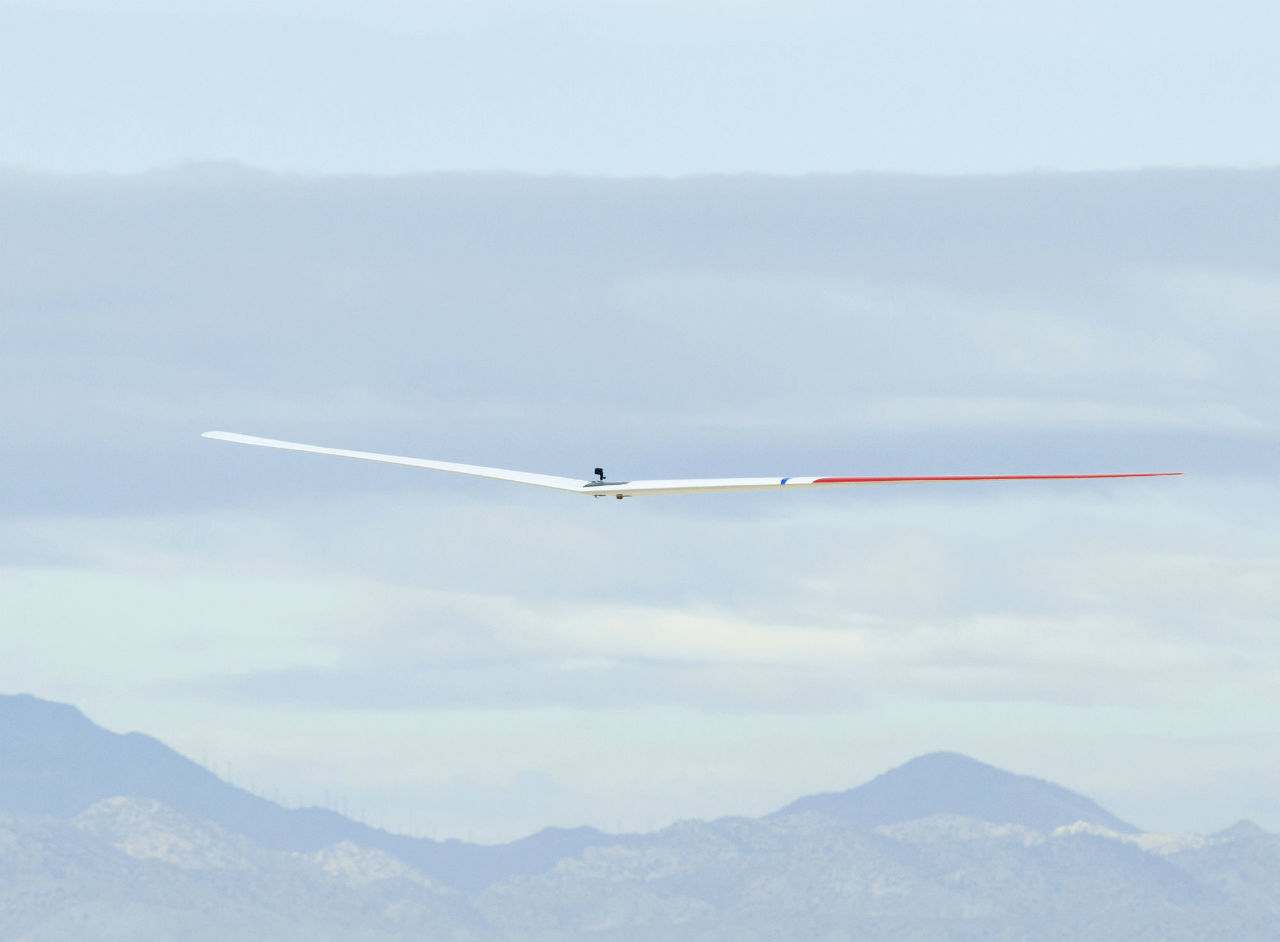NASA hopes to dramatically increase the fuel efficiency of future aircraft thanks to ideas validated with increasingly complex subscale, experimental, remotely piloted aircraft at the agency's Armstrong Flight Research Center in California.
Flights are scheduled to resume this summer on the flying wing-shaped Primary Research Aerodynamic Design to Lower Drag, or Prandtl-D No.3. The project features a new wing design method and a twist. If the concept continues to prove its value, it could forward NASA's research goals to prove technologies leading to significant fuel economy and emissions reduction.
Research performed with a series of remotely controlled-subscale Prandtl-D models over the past three years confirms that the bell-shaped spanloading method generates proverse yaw. Proverse yaw is thrust, rather than drag, at the wingtips and makes the aircraft's tail unnecessary because of the design and not because of the need for electronic controls. The result is greater efficiency and the potential to reimagine airplane design.
Researchers, industry and academia can learn how wing twist and a radically different bell-shaped spanloading – the load distribution over the wing's span – could lead to a substantial reduction in drag detailed in a technical paper released in March. The NASA technical publication is entitled, "On Wings of the Minimum Induced Drag: Spanload Implications for Aircraft and Birds," NASA/TP – 2016-219072.
The Prandtl-D wing, which is the foundation of the experiment, will reduce aerodynamic drag by at least 11 percent, according to Al Bowers, NASA Armstrong chief scientist and Prandtl-D project manager. Aircraft that use the Prandtl-D configuration without a traditional fuselage and tail could see fuel efficiency gains of more than three times that, or divide gains to obtain increased speed or range using the same amount of fuel, Bowers said.

